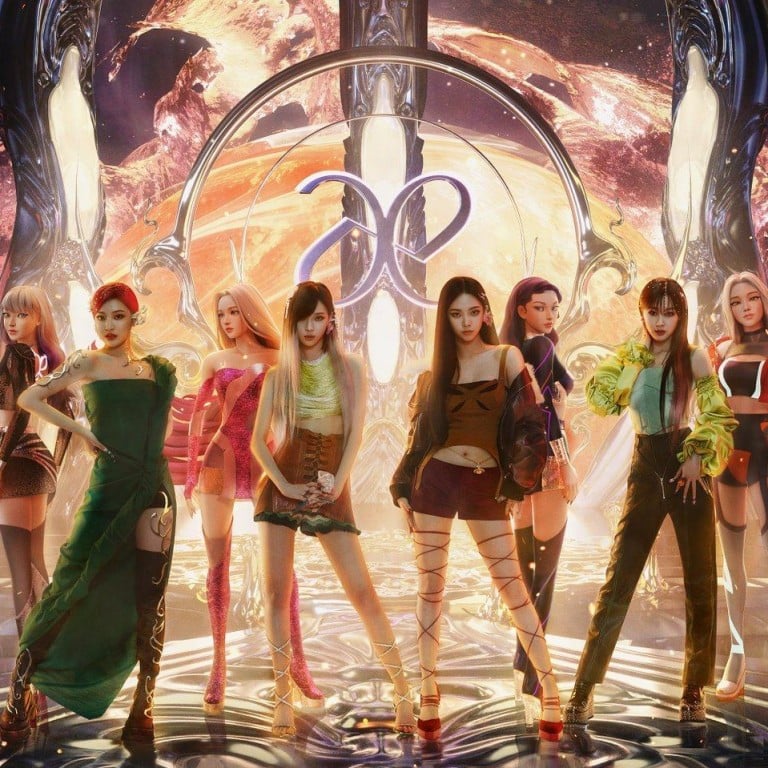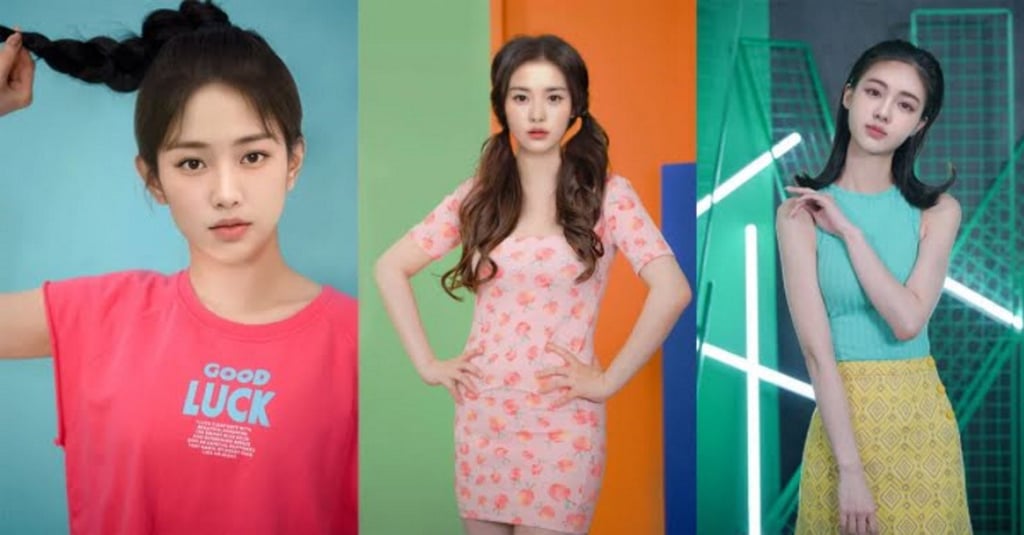Could a virtual K-pop girl group dethrone Blackpink? After Aespa’s VR avatars comes Eternity, an 11-piece girl band created from AI graphics – but with new tech comes problems too

- Perhaps SM Entertainment, behind such acts as Exo and NCT, considered the rising popularity of online streaming and digital entertainment when it launched Aespa
- Even League of Legends launched AI pop act K/DA, whose music video racked up millions of views on YouTube – but ethical and copyright worries abound
In March, girl group Eternity made its debut with the song, I’m Real. Like other K-pop acts, it also unveiled an eye-catching music video and short interview clips featuring each member. The 11-piece group looks no different from other girl groups – except that the members are not real human beings. They are actually hyperrealistic virtual characters created through state-of-the-art artificial intelligence (AI).

It was AI graphic company Pulse 9 that brought the members to life. The company’s CEO Park Ji-eun launched Eternity out of the belief that AI members could become game changers with their unique edge, during this era when Korean cultural content is enjoying its heyday.
Unlike human singers, AI members can freely express themselves and weigh in on diverse social issues because they are less vulnerable to malicious comments and criticisms
Eternity has its own “universe” crafted by Park and her colleagues. In this universe, the members are aliens from a distant planet called Aian, who were dispatched to the earth to interact with people and find solutions to save their threatened planet.

“We used our Deep Real AI technology to make 101 different faces,” Park explained. “The technology enables us to create picture-like images of human beings and various objects through AI. Its strength lies in the details; through this technology, we can make a wide range of faces with different facial expressions and features.”
Pulse 9’s new attempt seems to have captured the attention of the public. The music video for I’m Real has racked up 570,000 hits on YouTube as of Monday, June 7, while the interview clips featuring the members all exceeded 100,000 views.
“That looks so real for a couple of minutes for me,” an online user commented on member Seo-a’s interview video. “I cannot wait to see more of this cool project.”

“We are planning to make use of diverse technologies such as augmented reality (AR) and holograms to help Eternity build rapport with its fans,” she said.